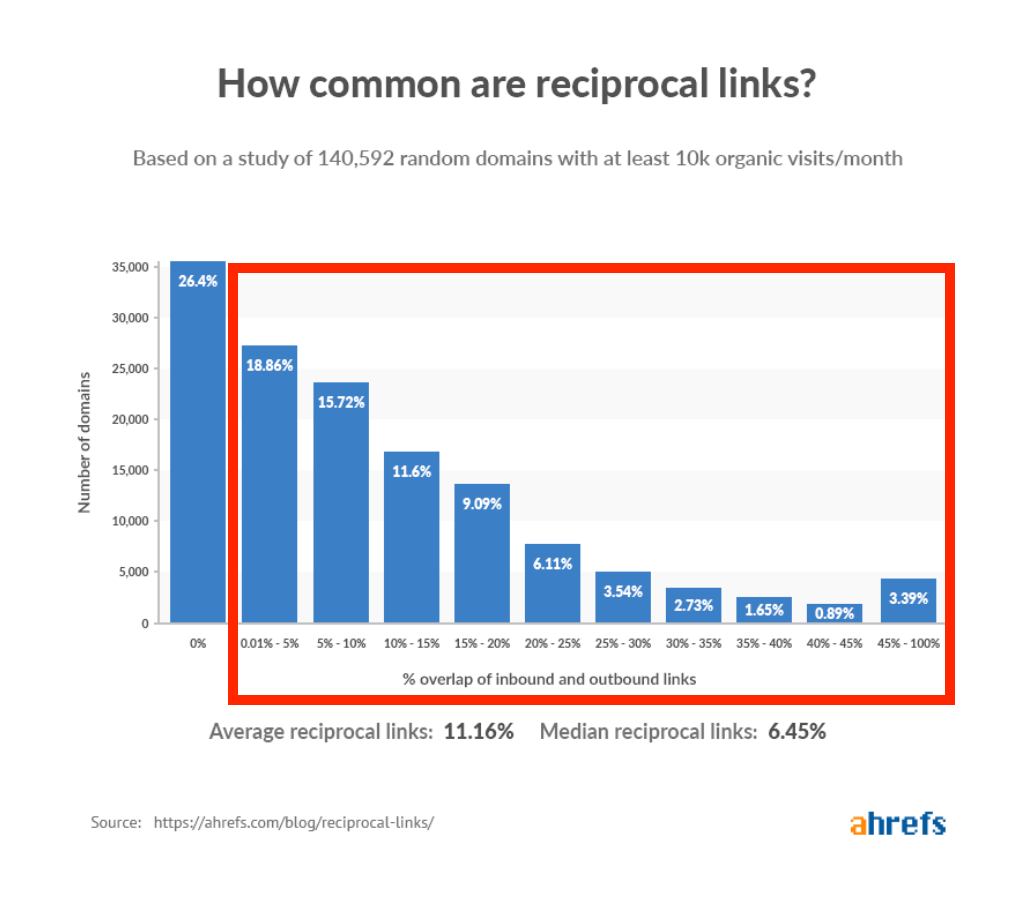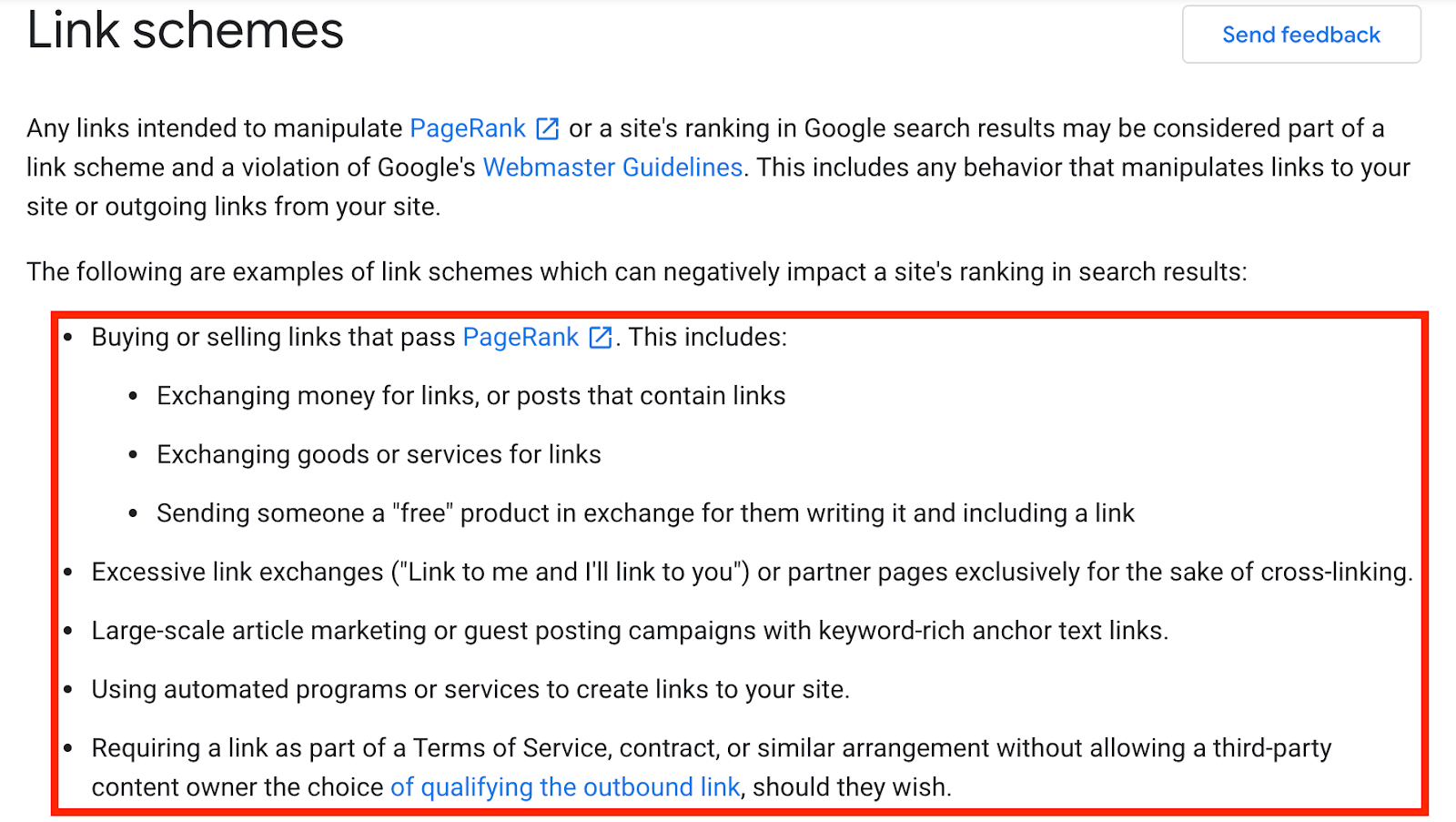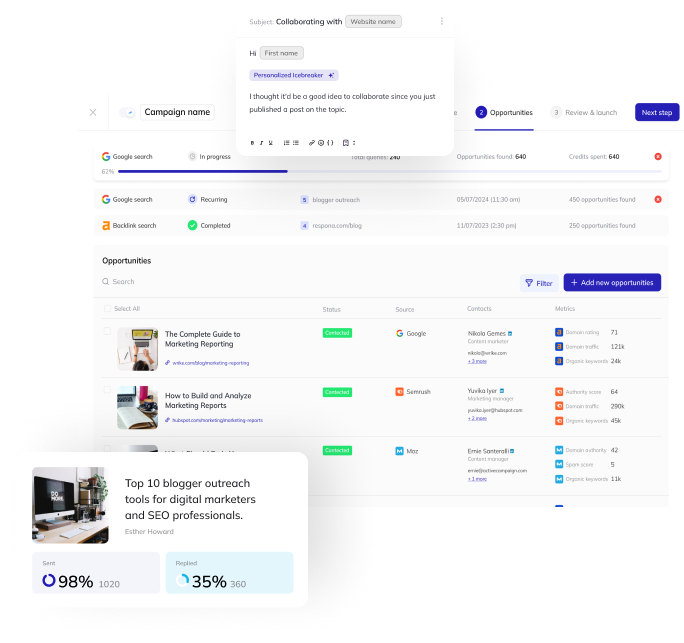Reciprocal Links
What are Reciprocal Links?
Reciprocal links are mutual backlinks shared between two websites.
In other words, this is the “I’ll link to you, you’ll link to me!” situation.
Nowadays, many individuals would ask for a link back instead of monetary compensation.
According to an Ahrefs analysis on reciprocal links, 73.6% of the study’s sample sites contain reciprocal backlinks:

Requesting a link back instead of money is better, but still considered a “link scheme” and puts you in violation of Google’s Webmaster Guidelines.
Let’s look at whether reciprocal links might actually harm your SEO.
Are Reciprocal Links Harmful?
We still haven’t addressed the big question: do reciprocal links harm your SEO?
On a small scale, no.
Google’s algorithm detects reciprocal links and de-values them pretty much instantly. This means that they don’t count toward or against your rankings.
However, excessive reciprocal linking might be detrimental to your SEO.
Quickly amassing hundreds of reciprocal links can and will get the attention of Google’s staff and may cause your account to be manually reviewed.
If the staff deems that you were trying to artificially manipulate your rankings through large-scale reciprocal linking, you may even become subject to a Google penalty.

Google warns people about the consequences of attempting to cheat PageRank or any site’s Google ranks in search results.
More precisely, any tactic aimed at manipulating inbound links to your own site might result in Google penalization, essentially lowering your rankings or preventing your site from showing up in search results entirely.
Some actions that might significantly harm your SEO include:
- Selling and purchasing PageRank-passing links, as well as trading links for money, products, or services
- Excessive reciprocal linking and partner pages with low-quality material built exclusively for the sake of link building
- Automatic link building, such as using a link acquisition service or a bot
And the list goes on.
Reciprocal Link Example
The following example is an email that we ourselves have received, offering a reciprocal link exchange.

What to do Instead of Reciprocal Links?
The best way to get white-hat backlinks is to hire at least one in-house team member dedicated to just building links.
This is because link building is one of the most time-intensive processes in the entirety of SEO.
If you choose to do link building in-house, Respona may help you save up to 90% of the time it takes to run link building outreach campaigns, as this is the tool’s core function.
We propose combining three of the most powerful link-building campaigns:
Bottom Line
Even if a few reciprocal links aren’t necessarily going to “harm” your SEO, the algorithm will still pick them up and devalue them from contributing to your actual rankings, meaning that you have essentially wasted your time on something that isn’t going to work.
Instead of reciprocal backlinks, it’s much better to focus on white-hat strategies that are not in violation of Google’s Webmaster Guidelines.
